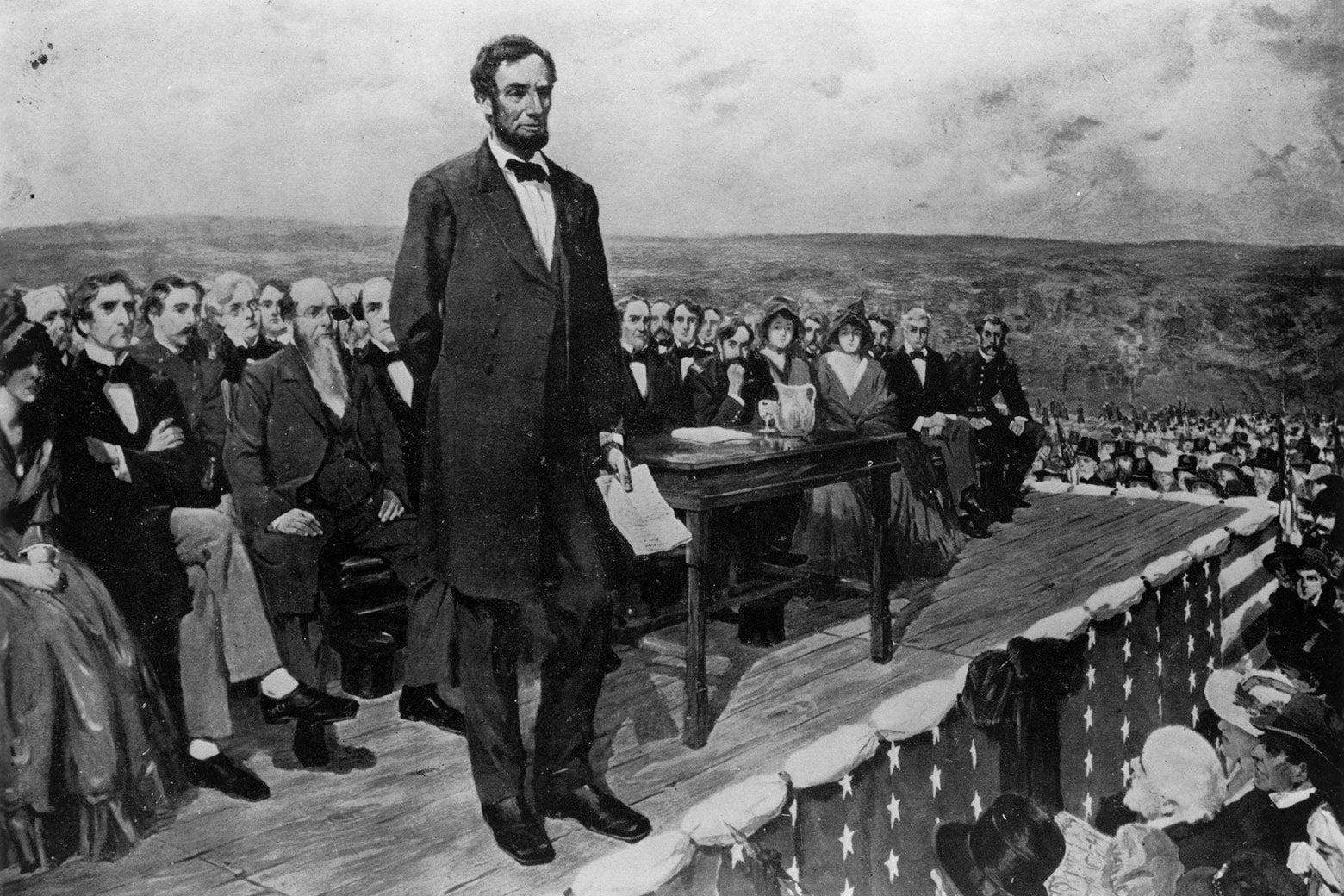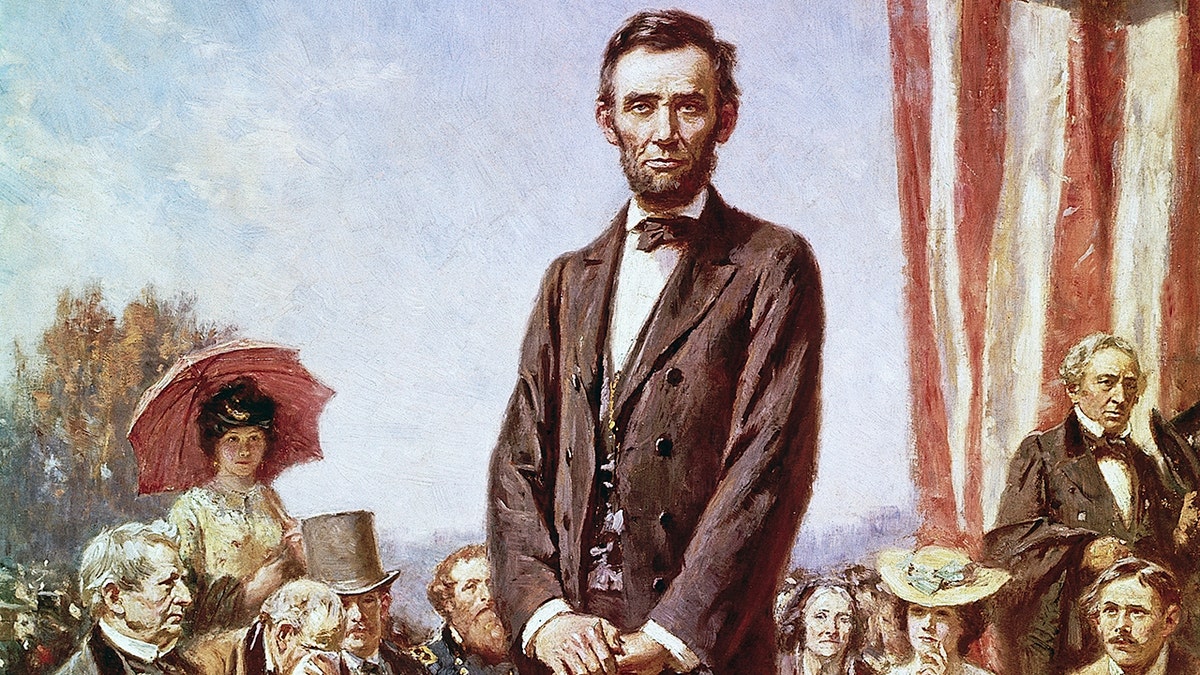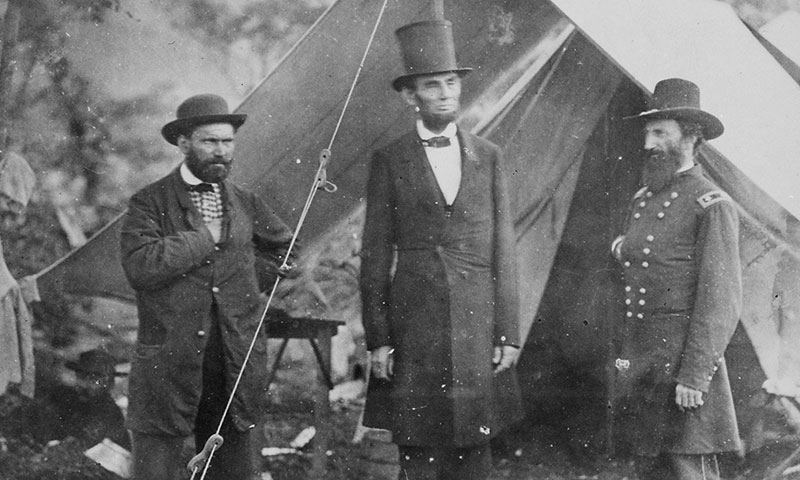Abraham Lincoln: The Legacy of America's 16th President
 Abraham Lincoln, America's 16th president, stands as one of the most iconic figures in the nation's history. Renowned for his leadership during the Civil War, his unwavering commitment to the preservation of the Union, and his advocacy for emancipation, Lincoln's legacy reverberates through time, shaping the course of American democracy and inspiring generations. In this comprehensive exploration, we delve into the life, leadership, and enduring impact of Abraham Lincoln.
Abraham Lincoln, America's 16th president, stands as one of the most iconic figures in the nation's history. Renowned for his leadership during the Civil War, his unwavering commitment to the preservation of the Union, and his advocacy for emancipation, Lincoln's legacy reverberates through time, shaping the course of American democracy and inspiring generations. In this comprehensive exploration, we delve into the life, leadership, and enduring impact of Abraham Lincoln.
Early Life and Rise to Prominence:max_bytes(150000):strip_icc()/GettyImages-1586533211-5ba2727d46e0fb0025dd0ab7.jpg)
Abraham Lincoln was born on February 12, 1809, in a log cabin in Hardin County, Kentucky, now part of LaRue County. Raised in humble surroundings, Lincoln's childhood was marked by hardship and toil. Despite limited formal education, his insatiable thirst for knowledge and voracious reading habits laid the foundation for his intellectual development.
Lincoln's journey to prominence began in earnest when he moved to Illinois in 1830, where he worked various odd jobs before embarking on a career in law. His innate talent for oratory and his staunch advocacy for social justice quickly garnered attention, propelling him into the world of politics. In 1834, he was elected to the Illinois State Legislature, marking the beginning of a remarkable political ascent.
Political Career and Presidency
Lincoln's political career was characterized by his steadfast opposition to the expansion of slavery into the Western territories. As a member of the Whig Party and later the Republican Party, he emerged as a prominent voice in the national debate over slavery, earning acclaim for his eloquent speeches and impassioned arguments.
In 1860, Lincoln clinched the Republican nomination for president, campaigning on a platform that emphasized the preservation of the Union and the abolition of slavery in the territories. His victory in the presidential election of 1860 sparked outrage in the South, leading to the secession of several Southern states and the onset of the Civil War.
As president, Lincoln faced the daunting task of navigating the nation through its most tumultuous period. His leadership during the Civil War was characterized by strategic acumen, moral clarity, and a steadfast commitment to the principles of liberty and equality. Despite facing immense challenges and criticism, Lincoln remained resolute in his determination to preserve the Union and eradicate the scourge of slavery.
Emancipation Proclamation and Legacy of Freedom
One of Lincoln's most enduring legacies is his issuance of the Emancipation Proclamation on January 1, 1863. By declaring that all slaves in Confederate-held territory were to be set free, Lincoln fundamentally transformed the nature of the Civil War, framing it not only as a struggle for Union but also as a crusade for freedom.
While the Emancipation Proclamation did not immediately abolish slavery in its entirety, it laid the groundwork for the eventual passage of the 13th Amendment, which formally abolished slavery in the United States. Lincoln's unwavering commitment to emancipation cemented his status as a champion of human rights and a beacon of hope for generations to come.
Assassination and Martyrdom
Tragically, Lincoln's presidency was cut short by an act of senseless violence. On April 14, 1865, just days after the Confederate surrender at Appomattox Court House, Lincoln was assassinated by John Wilkes Booth while attending a play at Ford's Theatre in Washington, D.C. His death plunged the nation into mourning and cast a shadow over the prospects of Reconstruction.
Lincoln's assassination elevated him to the status of martyrdom, immortalizing his memory in the annals of American history. His profound impact on the nation's trajectory and his enduring commitment to the principles of liberty and equality ensured that his legacy would endure for generations to come.
Enduring Legacy and Influence
Abraham Lincoln's legacy extends far beyond the confines of his presidency. His vision of a united and free America continues to inspire people around the world, serving as a guiding light for those who seek justice, equality, and human dignity.
From his humble beginnings in a log cabin to his pivotal role in shaping the course of American history, Lincoln's journey is a testament to the power of perseverance, integrity, and moral courage. As we reflect on his life and legacy, we are reminded of the enduring importance of leadership, empathy, and compassion in the face of adversity.
In conclusion, Abraham Lincoln's legacy is etched into the fabric of American society, his name synonymous with the ideals of freedom, democracy, and equality. As we honor his memory and celebrate his contributions, let us strive to uphold the principles for which he so valiantly fought, ensuring that his legacy endures for generations to come.
Remembering Lincoln: Commemoration and Reflection
Throughout the years, Abraham Lincoln has been commemorated in various ways, from statues and monuments to currency and postage stamps. His iconic image, with his distinctive beard and stovepipe hat, serves as a symbol of American greatness and resilience.
Every year on February 12, Lincoln's birthday, and on Presidents' Day, the nation pays tribute to his memory, reflecting on his profound impact and enduring legacy. Schools, museums, and historical societies across the country host events and exhibitions dedicated to Lincoln, ensuring that his story continues to be told and his contributions remain relevant to future generations.
Moreover, Lincoln's words continue to resonate with people around the world. His speeches, including the Gettysburg Address and his second inaugural address, are studied and revered for their eloquence, moral clarity, and timeless wisdom. In an age marked by division and discord, Lincoln's message of unity, reconciliation, and shared humanity serves as a beacon of hope and inspiration.
The Relevance of Lincoln's Legacy Today
In today's rapidly changing world, Lincoln's legacy remains as relevant as ever. As the United States grapples with pressing social, economic, and political challenges, Lincoln's example offers valuable lessons in leadership, integrity, and resilience.
Lincoln's unwavering commitment to the principles of democracy and equality serves as a reminder of the enduring importance of upholding the rule of law, protecting individual rights, and fostering a more inclusive society. His ability to bridge divides and forge consensus in the face of adversity offers a blueprint for effective governance and meaningful change.
Furthermore, Lincoln's vision of America as a beacon of freedom and opportunity continues to inspire people around the world who yearn for a better future. In an era marked by globalization and interconnectedness, Lincoln's message of hope and unity transcends national borders, resonating with individuals from all walks of life who share a common aspiration for a more just and equitable world.
Conclusion: Lincoln's Enduring Legacy
In conclusion, Abraham Lincoln's legacy is a testament to the power of leadership, courage, and moral conviction. From his humble origins to his pivotal role in shaping the course of American history, Lincoln's journey embodies the spirit of resilience and determination that defines the American experience.
As we reflect on Lincoln's life and legacy, we are reminded of the enduring importance of striving for justice, equality, and human dignity. His example serves as a guiding light for future generations, inspiring us to confront the challenges of our time with courage and compassion.
In the words of Lincoln himself, spoken at Gettysburg on November 19, 1863, "that this nation, under God, shall have a new birth of freedom—and that government of the people, by the people, for the people, shall not perish from the earth." As we honor his memory and celebrate his contributions, let us reaffirm our commitment to the ideals for which he so valiantly fought, ensuring that his legacy endures for generations to come






















































